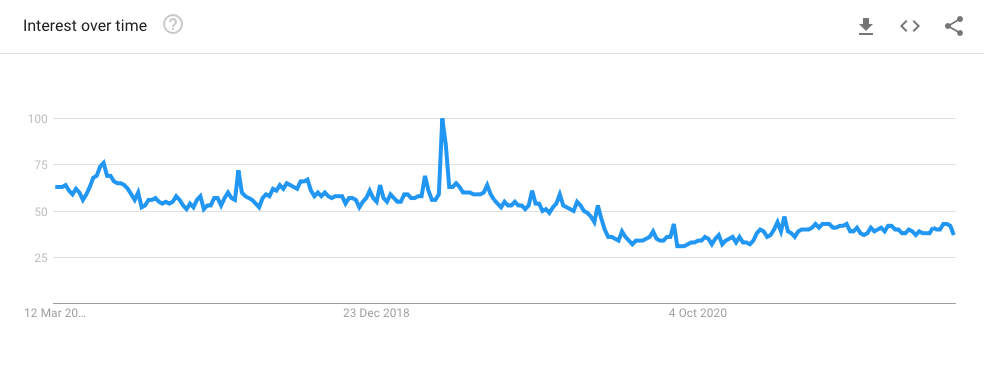Overview #
The contents of the course are presented in this document in the form of videos, texts and pictures. In addition, there are the following (mandatory) on-site session, which cover related topics and Q&A at the following dates:
| Date | Time | Session |
|---|---|---|
| 11.03. | see Learn@WU | Intoduction to "The Electronic Market Place" |
| 16.03. | see Learn@WU | Digitization |
| 18.03., 25.03. | see Learn@WU | Marketing Mix in Electronic Markets |
| 01.04. | see Learn@WU | Presentations & Exam |
For further questions, I am available via email.
Contents #
Developments in information and communication technology are radically changing the ways in which businesses operate and compete in today’s global marketplace. This course provides an overview over e-business from a managerial perspective and introduces students to the relevant concepts, models, and strategic issues that are important for businesses that operate in the online environment.
Learning outcomes #
The aim of this course is to provide students with an understanding of the impacts that e-business is having on markets, business models, and a firm’s marketing activities.
The objectives of the course are:
- To provide you with an understanding of the core concepts, technologies, and business models in the electronic marketplace
- To sensitize you to changes in consumer behavior in the online environment
- To enable you to critically evaluate different ways for firms to adapt their marketing strategies in an increasingly digitized world
- To deepen your knowledge of empirical research methods and train your ability to analyze consumer behavior empirically
- To provide you with the foundations to design an online business and motivate you to think “digitally”
- To improve your communication, presentation and team working skills
Assessments #
Grading is based on the following components: A topic elaboration, practical and theoretical assignment. All parts can be done from home.
| Component | Max. Points | Deadline/Date | Task description |
|---|---|---|---|
| Business model challenge (group work) | 25 | Unicorn selection & argumentation: 18.03. Review of peers: 01.04. | link |
| Data analysis challenge | 25 | 01.04. | link |
| Presentation of a scientific journal article from the reading list (group work) | 15 | 01.04. | link |
| Final exam | 25 | 01.04. | |
| Class participation (individual; quantity & quality of contributions during the sessions) | 10 |
Business model challenge: Finding 🦄 and determining their breed #
- Read the publication “Delimiting disruption: Why Uber is disruptive, but Airbnb is not” by Eitan Muller.
- Each person should select a unicorn 🦄 and argue whether it is disruptive or not based on the article. Document your argumentation and submit it to Learn@WU (max. 250 words)
- Put your group colleagues' reasoning to the test. For each of your team mates, write down whether you share the same opinion or not? Submit your argumentation in form of a texutal report (max. 300 words in total) via Learn@WU.
Presentation of a scientific journal article #
Each group should select, read and present one article.
- The same article should not be selected twice.
- Work together in groups of 5 students
Work on the following task a) individually, and b) as a group: How can the insights generated by the article inform current business practice?
- Process: Prepare two slides individually. One slide summarizing the article’s core finding. One slide connecting the findings with a practical case. Bring these slides to the group meeting, discuss & refine your group idea.
- Presentation: max. 5 minutes per group. Highlight the key insights of the article and discuss your favorite application idea.
- Appendix of presentation: the two slides of each individual group member (add name and student ID on each slide)
- Please submit your slides on the day before the presentation via Learn@WU
Articles:
- Akpinar, Ezgi, and Jonah Berger. “Valuable virality.” Journal of Marketing Research 54.2 (2017): 318-330.
- Fong, Nathan, et al. “Targeted promotions on an e-book platform: Crowding out, heterogeneity, and opportunity costs.” Journal of Marketing Research 56.2 (2019): 310-323.
- John, Leslie K., et al. “Does “liking” lead to loving? The impact of joining a brand’s social network on marketing outcomes.” Journal of marketing research 54.1 (2017): 144-155.
- Lambrecht, Anja, and Catherine Tucker. “When does retargeting work? Information specificity in online advertising.” Journal of Marketing research 50.5 (2013): 561-576.
- Valsesia, Francesca, Davide Proserpio, and Joseph C. Nunes. “The positive effect of not following others on social media.” Journal of marketing research 57.6 (2020): 1152-1168.
Data analysis challenge: Disruption disrupted by Disruption? #
Innovative startups are often negatively impacted by shocks. For example, the Covid pandemic had a negative impact on AirBnB, Uber, and many other Unicorns.

- Find an event that disrupted the growth of a (ideally disruptive) startup.
- Load the google seach trends for the startup such that the event is covered.
- Analyse the data and caluclate the change in google searches before and after the event.
Possible example (may no longer be elected):
- Uber and the pandemic
- Yandex and the ukraine war
Please note that:
- Examples covered in the lecture should not be selected
- Document your selection, descripte the company, and the event. Moreover, calculate the mean increase/drop in search activity after the event. Submit your report (max. 200 words) on Learn@WU
Grading #
These grading components will be added to calculate the final grade, which is based on the following grading scheme:
| Overall points | Grade |
|---|---|
| 90-100 | 1 |
| 80-89 | 2 |
| 70-79 | 3 |
| 60-69 | 4 |
| < 60 | 5 |